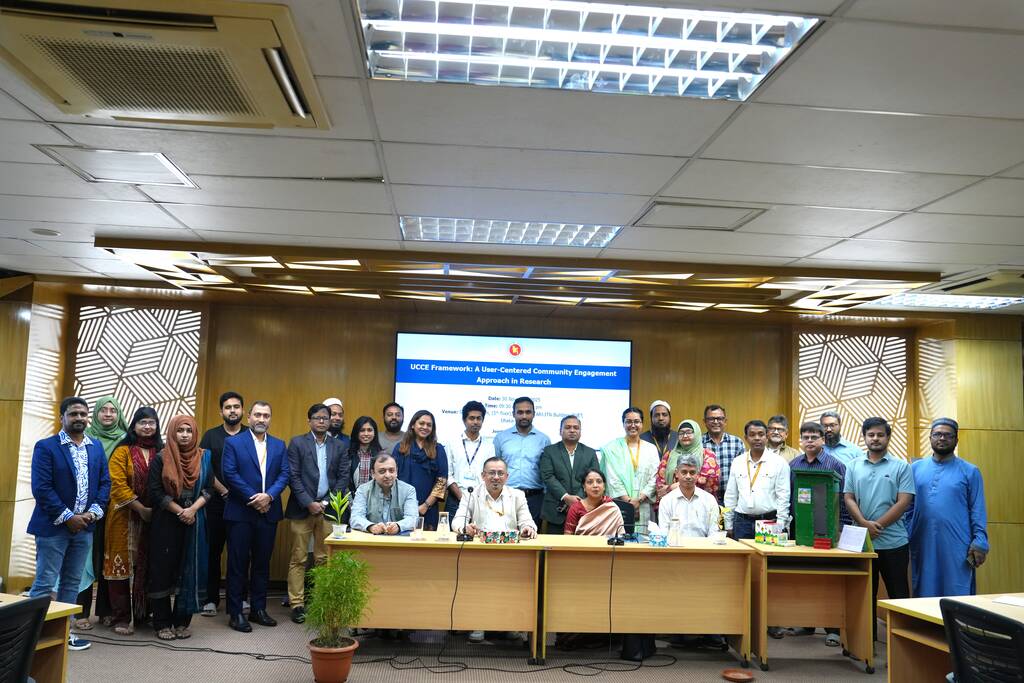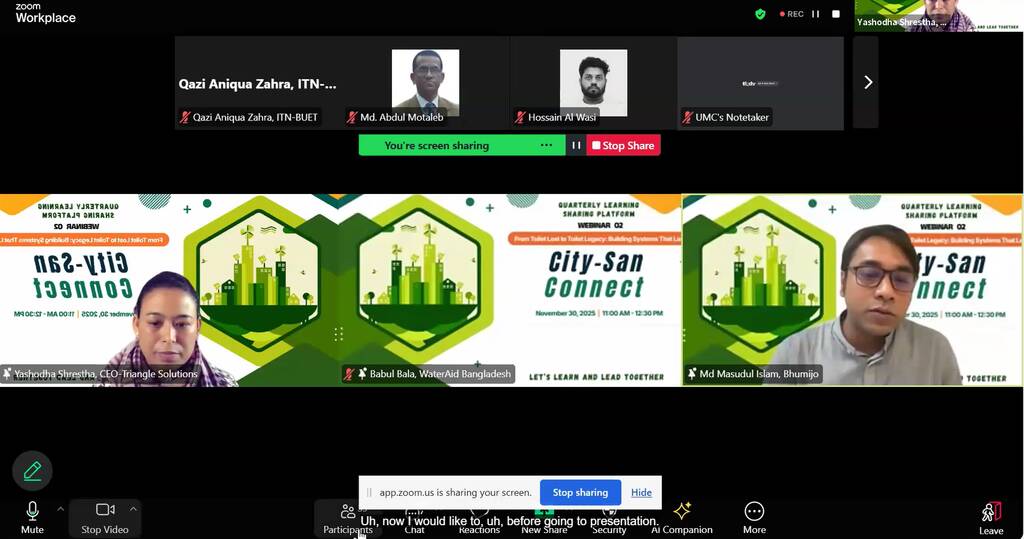ITN-BUET conducted a three-day training on Climate-Resilient Sanitation Safety Planning (CR-SSP) from 01 to 03 December, 2024 to enhance the capabilities of sanitation professionals in managing resilient and safe sanitation systems in the face of climate change. The training brought together 11 participants, including lecturer, environmental specialist, engineers, and experts from different organizations including academic institutions, NGOs, and private organizations. The group included three women, reflecting a growing trend of women’s involvement in sanitation management initiatives.
The training focused on the vital connection between public health risks and effective sanitation system management, with an emphasis on integrating climate resilience into Sanitation Safety Planning. At the inauguration, Prof. Dr. Tanvir Ahmed, Director of ITN-BUET, highlighted that Sanitation Safety Planning (SSP) is a relatively new concept of Sanitation Safety Planning (SSP) compared to Water Safety Planning (WSP). He noted that the training aimed to familiarize participants with SSP as a practical tool for planning and prioritizing sanitation improvements, particularly when resources are limited. The sessions of the training were led by experienced facilitators, including Prof. Dr. Tanvir Ahmed, Mr. Subrata Paul, Md. Azizur Rahman, Dr. Asef Mohammad Redwan of ITN-BUET and Ms. Farah Naznin from WaterAid. The training provided participants with essential knowledge on conducting vulnerability assessments, identifying key areas for improvement, and integrating climate resilience into sanitation systems.
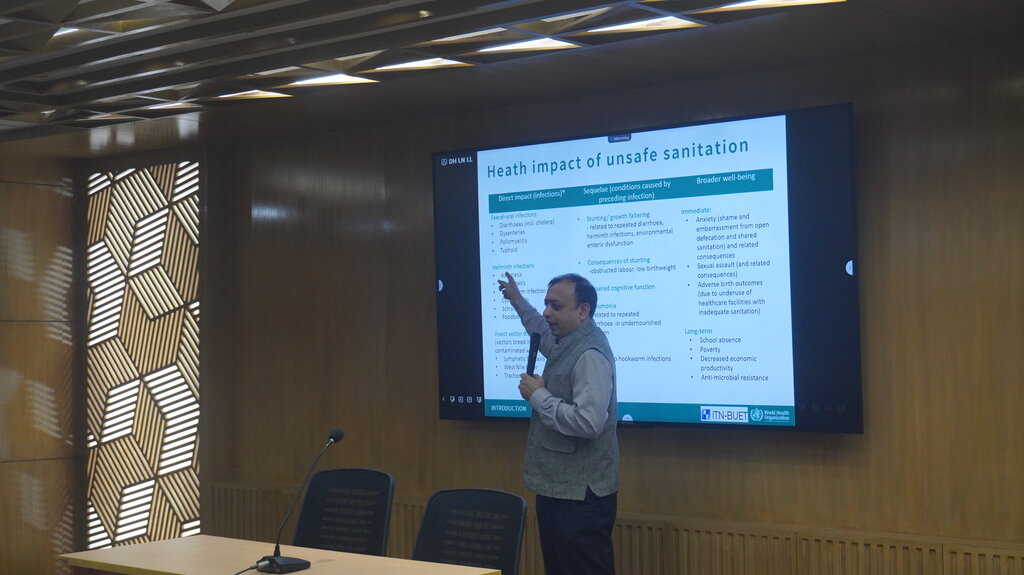
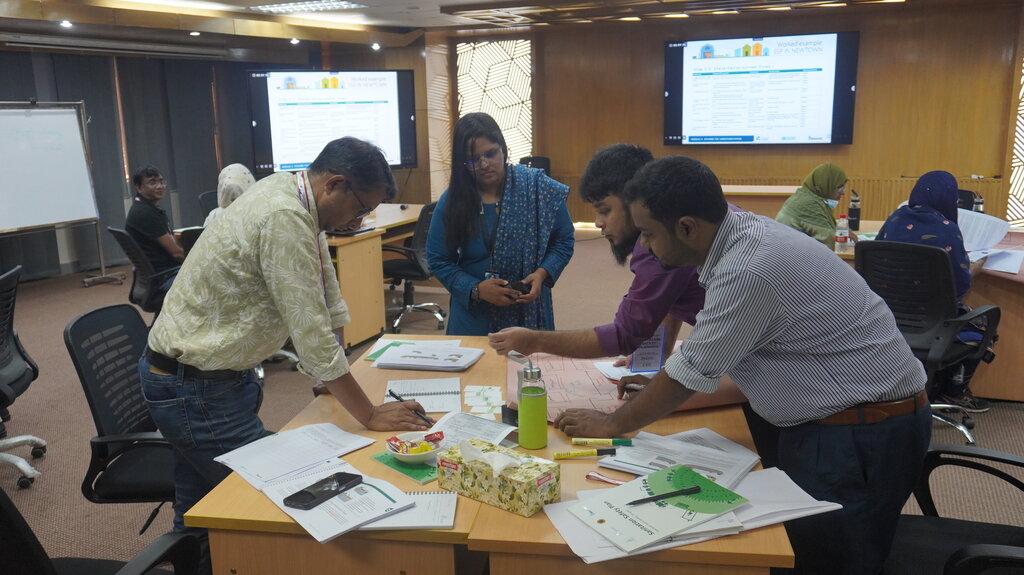
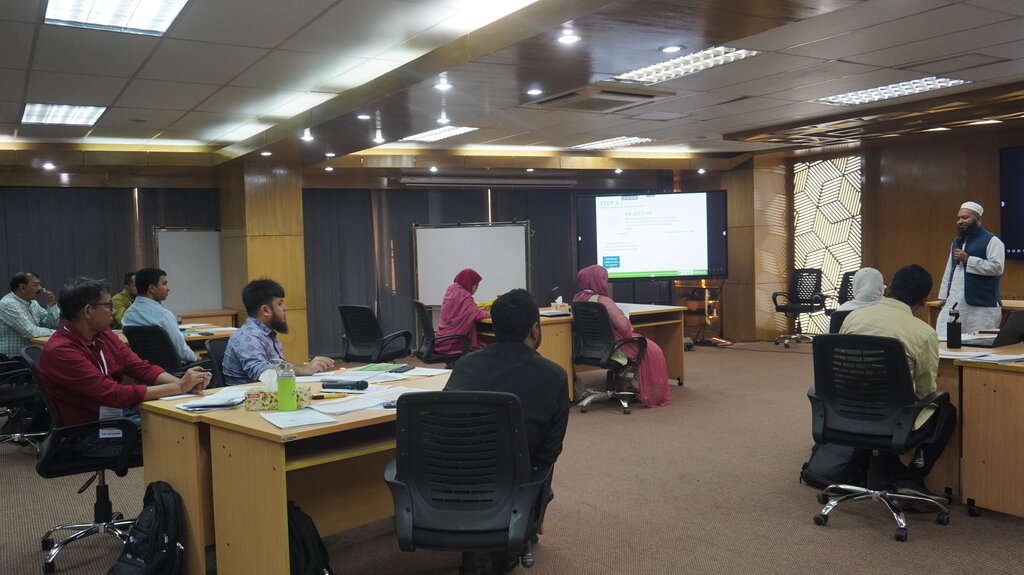
The three-day training comprised two-day classroom sessions and one day field visit. The field visit was arranged to Sakhipur, Tangail, where participants engaged in hands-on learning about application of SSP process steps in Fecal Sludge Management (FSM) and Solid Waste Management (SWM) systems. They explored a Fecal Sludge Treatment Plant (FSTP) and a Black Soldier Fly (BSF) Solid Waste Treatment Unit, gaining insight into innovative and sustainable waste management practices. This practical exposure enriched their theoretical knowledge, providing valuable understanding of the operational dynamics of climate-resilient sanitation systems.
Participants expressed their appreciation for the program, emphasizing its relevance and practicality of CR-SSP training. Ms. Kazy Farhat Tabassum noted that while the training strongly focused on SSP, more emphasis on climate resilience will make the learning effective to better address the growing challenges of climate change. Another participant, Mr. Khandakar Mohammad Abdul Qayum, commended the course structure and suggested incorporating more examples from both urban and rural contexts, particularly focusing on Citywide Inclusive Sanitation (CWIS) and advanced sanitation technologies.
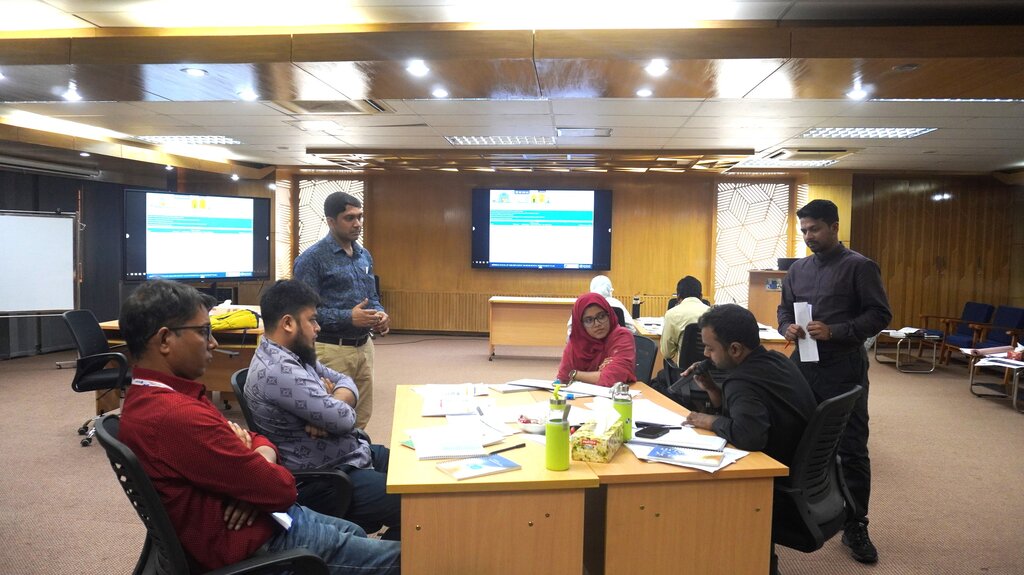
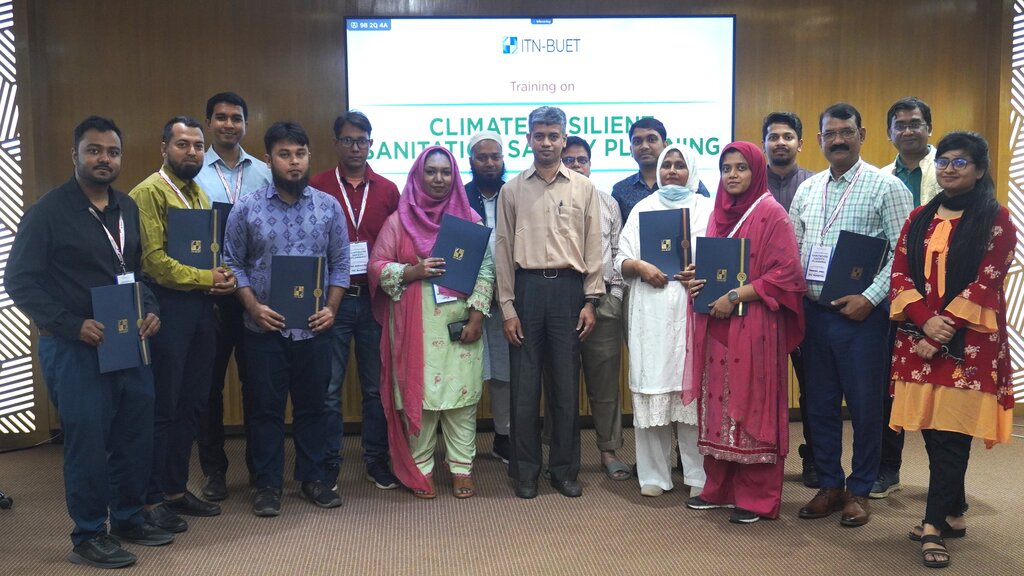
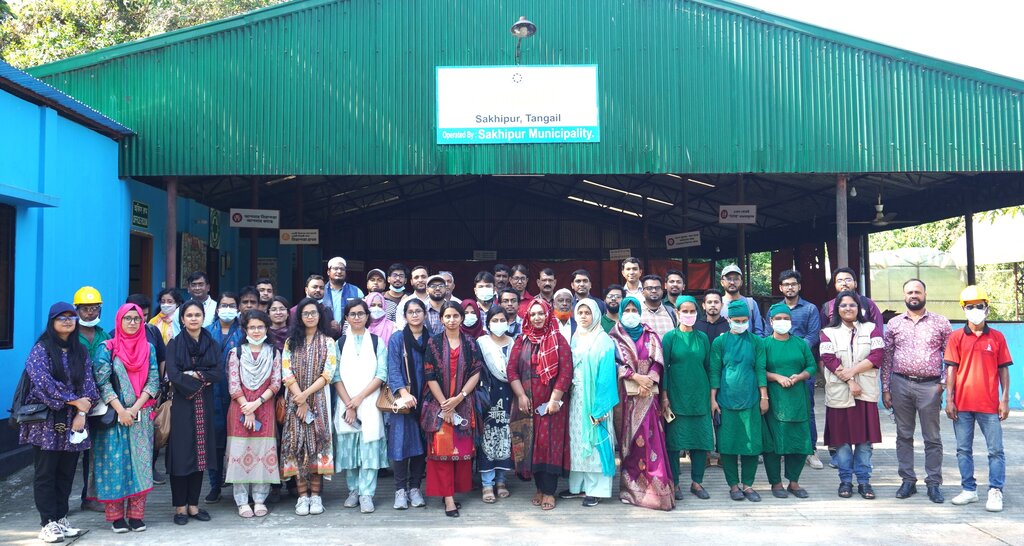
The training served as a platform for knowledge sharing and collaborative learning, equipping participants with tools and strategies to implement climate-resilient sanitation solutions in their regions. By combining theoretical insights with practical exposure, ITN-BUET continues to support the development of sustainable and resilient sanitation systems, contributing to global efforts to address sanitation challenges in the context of a changing climate. The course ended with accomplishment certificates to all.



